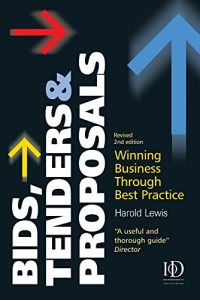Join getAbstract to access the summary!

Join getAbstract to access the summary!
Harold Lewis
Bids, Tenders & Proposals
Winning Business Through Best Practice
Kogan Page, 2007
What's inside?
Use this handy guide to handle every detail of developing and presenting winning bids.
Recommendation
Proposal writing expert Harold Lewis offers scads of helpful tips and step-by-step guides for successful bidding. The author helps readers evaluate bidding opportunities, explains what to do (and not do) in creating a bid, and discusses how to make a compelling presentation. While the book does provide some model forms, it is not a book of sample bids and presentations for those wanting to plug and play. Instead, it focuses on teaching you to make uniquely compelling proposals and bids. If you want to create and sustain a winning process for making bids, getAbstract recommends this practical guide to you.
Summary
About the Author
Harold Lewis has extensive experience in preparing bids, writing tender offers and winning professional contracts in the public and private sectors. He also wrote Choosing and Using Consultants & Advisers.

















Comment on this summary